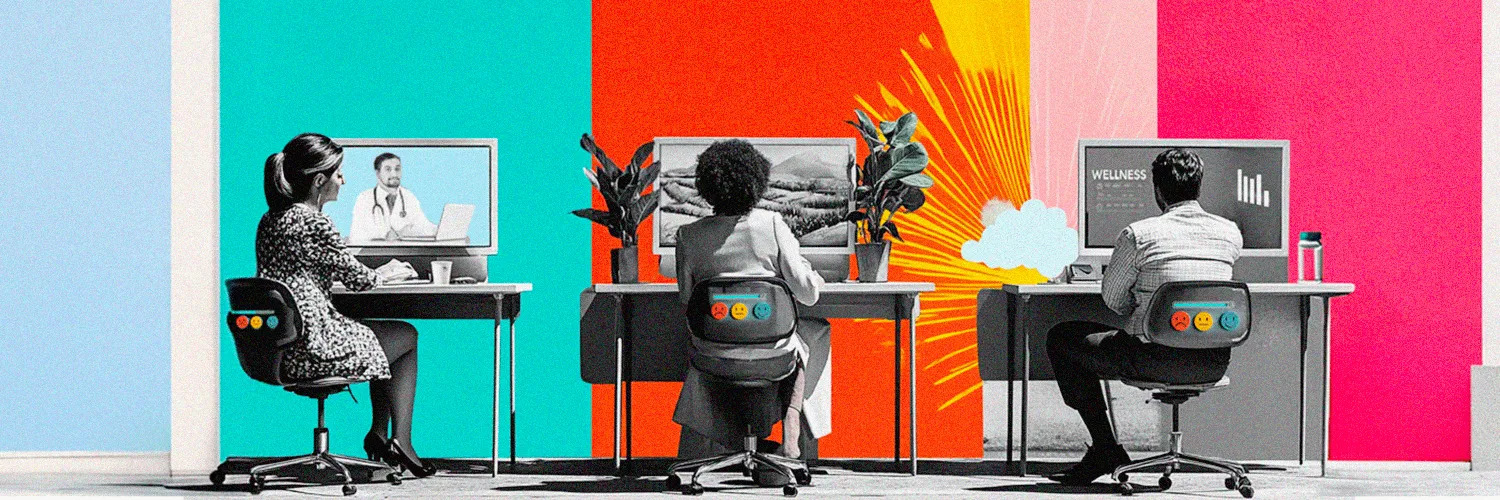Boost Employee Morale by Streamlining Access to Workplace Resources

The workplace of the future is no longer defined by rigid office spaces and fixed desks. With the rise of hybrid work models that combine remote and in-office work, businesses are facing new challenges in managing workspace resources effectively. Employees no longer have assigned desks, and office layouts must be flexible enough to accommodate varying schedules and work styles . This shift offers greater flexibility but also increases the complexity of managing workspaces, meeting rooms, and other office resources.
To ensure that employees can access the resources they need without frustration or inefficiency, companies must rethink their approach to workspace management. By implementing streamlined booking systems and optimizing space utilization , organizations can create a more collaborative, productive, and satisfying work environment.
In this article, we’ll explore how improving access to workplace resources can directly boost employee morale, reduce stress, and contribute to a more positive company culture .
The Growing Complexity of Hybrid Workspaces
The hybrid workspace is here to stay. As more organizations shift to hybrid models, employees are split between working from home and working in the office. According to a recent study by Accenture, “83% of global workers prefer a hybrid working model that allows them to split their time between the office and remote work.” This shift brings about new challenges when it comes to managing the physical workspace.
While remote work offers employees the flexibility to work from home, the in-office experience is becoming increasingly fluid. Employees don’t have permanent desks anymore, and offices need to accommodate people coming in on different days and at different times. This creates complexity in terms of managing meeting rooms, desks, parking spaces , and other office resources.
In this environment, organizations need to think carefully about how to organize and allocate space to avoid chaos. Without an efficient system in place, employees may find themselves spending more time navigating workspace issues than actually getting their work done. This is where effective workplace resource management becomes essential.

The Pain Points of Workplace Resource Access
Hybrid workspaces are inherently more complex than traditional office settings , and they come with their own set of pain points. These challenges impact employee satisfaction, morale, and productivity:
Inconsistent Access to Desks and Meeting Rooms
In a hybrid model, the availability of desks and meeting rooms can become a constant issue. Since employees are not assigned to fixed desks anymore, finding a suitable workspace can be a hassle, especially during peak hours. Employees may come into the office only to find that the desks or meeting rooms they hoped to use are already taken.
The Issue of Double Bookings and Scheduling Conflicts
Double bookings are a common issue in hybrid environments. When multiple employees attempt to reserve the same space simultaneously, it creates scheduling conflicts that hinder collaboration and productivity. It leads to wasted work hours as nearly “half (48%) of office workers report losing significant time each week searching for a free meeting room.”
Limited Space and Overcrowding Challenges
In some hybrid offices, space is limited , and overcrowding becomes a serious issue. “80% of organizations have downsized office space since the onset of the pandemic (which is a 20% increase year over year).”
Lack of Visibility on Space Availability
Another pain point in hybrid workspaces is the lack of visibility into real-time availability of desks and meeting rooms. Without a centralized system for tracking space usage, employees may waste time searching for open desks or meeting rooms.
Inflexible Workspace Options for Different Needs
Not all employees have the same workspace needs. Some may need quiet spaces for deep focus work, while others may require collaborative spaces for brainstorming sessions. A one-size-fits-all approach to workspace design fails to accommodate these differences.

How Poor Workspace Management Affects Employee Morale
When employees encounter difficulties accessing the resources they need, it has a direct impact on their morale and job satisfaction.
Increased Stress and Lower Job Satisfaction
When employees face frequent issues related to resource access – such as difficulty finding a workspace or dealing with scheduling conflicts – stress levels rise. Employees who feel that the company is not providing the resources they need to do their jobs efficiently may start to feel undervalued, leading to lower engagement and job satisfaction.
Reduced Productivity Due to Resource Unavailability
When resources are unavailable or difficult to access, productivity suffers . Employees may find themselves unable to complete tasks efficiently, leading to delays and decreased morale as they struggle against logistical hurdles.
Poor Collaboration and Communication Barriers
Effective collaboration relies on seamless communication and resource sharing. However, poor access to meeting rooms or spaces that foster teamwork can create significant barriers to communication.
Negative Perception of Company Support and Culture
Employees who encounter constant problems with workspace management may begin to question whether the company truly supports their success and well-being . This perception can be damaging, as employees may feel that the company is not investing in the resources or infrastructure needed to foster a productive work environment.

A Desk and Room Booking System Can Ease Employee Frustrations
One of the most effective ways to address these pain points is by implementing a streamlined desk and room booking system. Such systems can reduce many of the frustrations employees experience in hybrid workplaces and improve overall efficiency .
Centralized and Consistent Workspace Booking
A centralized booking system allows employees to reserve, amend, or cancel workspaces in real-time for specific time periods, from hours to weeks, through a single platform, providing consistency and transparency. It should include check-in/check-out features to track space usage and ensure resources aren’t left idle when not in use.
Real-Time Availability and Notifications
Real-time availability tracking ensures that employees can see which desks and meeting rooms are open at any given time enabling informed decisions about where to work without wasting time searching for open resources.
Automated Booking and Conflict Resolution
A robust desk and room booking system can automatically resolve conflicts by suggesting alternative spaces or times when an area is already reserved to avoid double booking. Automated systems can also prioritize certain users or types of meetings to ensure that important bookings are always accommodated.
Enhanced Space Utilization Through Data Insights
A desk and room booking system can provide valuable data insights about how workspaces are being used . This data can be analyzed to identify trends, such as peak usage times, overcrowding, or underutilized spaces.
Flexible Workspace Booking Options to Meet Varied Needs
Flexible booking options enable employees to choose spaces that best suit their working styles – whether they need quiet focus areas or collaborative spaces – enhancing overall satisfaction.
Seamless Integration with Calendars and Communication Tools
Modern desk booking software can integrate with tools like Microsoft Teams , Outlook, Slack, and Google Calendar, streamlining the booking process and significantly enhancing user adoption and efficiency.
Floor Maps and Directions for Easy Navigation
For larger offices or multi-building campuses, floor maps and wayfinding directions integrated into the booking system help employees easily locate their designated workspaces or meeting rooms.
YAROOMS for Workplace Resource Booking (And More)
YAROOMS Workplace Management Platform makes managing hybrid and remote work environments straightforward and effective. As an all-in-one solution, YAROOMS offers a range of tools designed to streamline the daily operations of modern workplaces, including room and desk bookings , office wayfinding , hybrid work planning , digital signage , and visitor management . These features not only enhance the functionality and efficiency of office spaces but also facilitate seamless transitions between home and office work settings.
Moreover, the Platform provides extensive workplace analytics that empower businesses to make data-driven decisions, optimize workspace usage , and improve employee experience . By integrating these capabilities, YAROOMS addresses the unique challenges of hybrid and remote working, ensuring that flexibility does not compromise productivity, employee autonomy , or workplace sustainability .
Tailored for scalability, YAROOMS can adapt to growing business needs, offering customizable features to meet specific requirements. With a focus on security and privacy , it adheres to industry standards, backed by supportive customer service and training resources.
The Bottom Line
Streamlining access to workplace resources is key to fostering a positive and productive hybrid work environment. By addressing the common challenges of inconsistent access, scheduling conflicts, and limited workspace options, companies can significantly enhance employee morale and reduce frustration. Implementing a robust desk and room booking system offers a practical solution that not only optimizes space utilization but also supports flexibility, collaboration, and well-being. As hybrid work continues to evolve, ensuring seamless access to the right resources at the right time will be essential for maintaining employee satisfaction, engagement, and overall organizational success.
Workplace of the future. Today.
See how YAROOMS integrates with Microsoft 365 to create a seamless workspace booking experience.